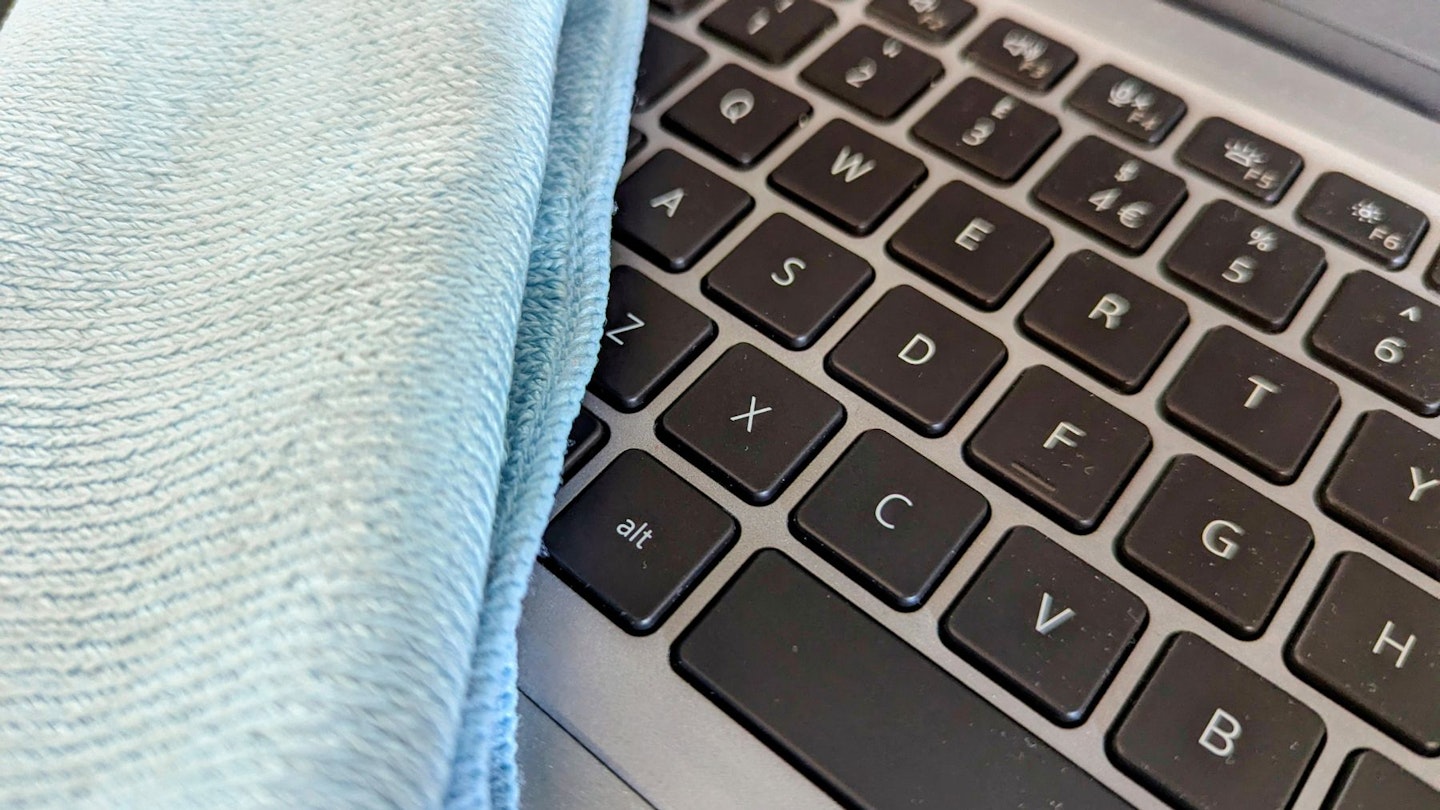If you’ve got yourself one of the best laptops, then it’s important to spend some time exploring the glamorous world of laptop maintenance. After all, whether it’s a budget laptop or something more premium, you’ve just parted with hundreds of pounds – possibly more – to buy your new computer. It makes sense to try to keep it working for as long as you can.
Regular laptop maintenance can help keep your laptop working for longer, whether that’s for financial reasons, environmental concerns, or just to avoid the frustration of a computer that’s running much slower than it used to. According to HP, a laptop should be expected to last between three and five years, with the battery typically lasting for the equivalent of 1000 charging cycles (roughly two to four years).
Much of this depends on how you use your laptop. For example, overclocking it to run high-end games that it struggles with - compared with browsing the internet and some light work tasks - will lead to two potentially very different life spans. But what daily laptop maintenance habits can you adopt to help keep your device running smoothly for as long as possible?
Top tips to maintain your laptop
1. Check for updates – keeping your software updated is essential to help keep your laptop running smoothly. Updates are used to add new features, fix bugs, and protect users from security issues. Many computers will now automatically inform you when an update is available, so you can apply the update as soon as possible. Many will even let you arrange for an update to happen overnight, so it doesn’t inconvenience you when you’re likely to be using it.
2. Use an antivirus and scan your computer – given the vast amount of personal data that is now stored digitally – we're thinking of photos, passwords, banking details, as just a few examples – a good antivirus can help to protect your laptop from viruses and other malware.
3. Keep your system cool – overheating can be a major problem for computers in general. With laptops, their smaller size can make this even more of a problem. A laptop that gets too warm can suffer hardware damage and may start to see a drop in performance. Keeping your fan clean and dust free and making sure the laptop is well ventilated can help. A good laptop stand or laptop cooling pad can help keep your laptop cool, and some even have fans built into them to provide extra cooling. And as a bonus, a laptop stand can improve your working position, which may reduce neck, shoulder and back pain, especially if you sit for extended periods working.
It’s also worth noting that using your laptop on a hard, flat surface such as a desk will also help with cooling, compared with putting it on a cushion, for example. These soft materials can retain more heat, and potentially reduce heat dissipation.
4. Regularly shut down your computer – you probably don’t have to do this every single day, but it is important to reboot your device on a regular basis. This helps free up memory and can help if your device is starting to run more slowly. Older laptops are more likely to benefit from being fully shut down at the end of the day, while newer ones just need to be rebooted every day or two and can be put in sleep mode the rest of the time.

5. Keep it clean – this may seem obvious, but laptops don’t like food debris, and they really don’t like having liquids spilled over them. So, it’s best to try and avoid eating or drinking next to your laptop. Crumbs can easily get into the keyboard, while liquids can cause serious issues if they get into the components.
You can use a keyboard cleaner to help remove any dust and debris from nooks and crannies, while a microfibre cloth can help keep the screen free from fingerprints or other smudges.
6. Don’t overcharge – it's very easy to just plug your laptop in and leave it charging all the time. The good news is that, according to some experts, internal hardware prevents modern batteries from being overcharged after they reach 100%. However, some research suggests that charging your laptop to 85-90% could extend the battery’s lifespan by up to one year, while charging to between 70-75% could help it last even longer.
Obviously, there’s a trade-off between battery lifespan and having to recharge it more often. But in general, not charging to 100% seems to be better for your laptop.
Steven Shaw is a Senior Digital Writer covering tech and fitness. Steven writes how-to guides, explainers, reviews and best-of listicles covering a wide range of topics. He has several years of experience writing about fitness tech, mobile phones, and gaming.
When Steven isn’t writing, he’s probably testing a new smartwatch or fitness tracker, putting it through its paces with a variety of strength training, HIIT, or yoga. He also loves putting on a podcast and going for a long walk.
Subscribe to the What’s The Best Newsletter to keep up to date with more of the latest reviews and recommendations from the What’s The Best team.
